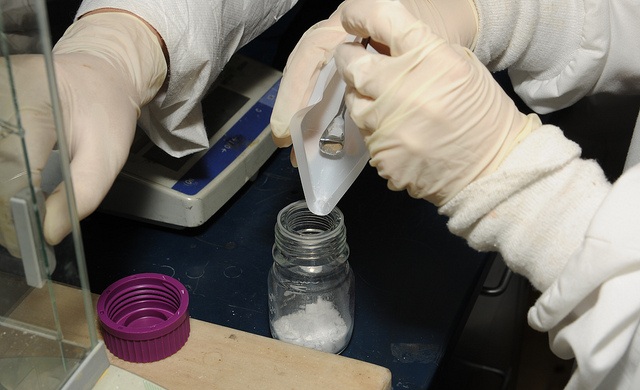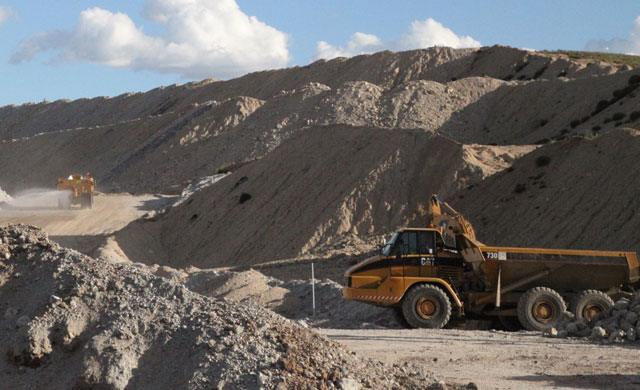London open: Stocks at two-week high, but gains limited

UK equity markets were trading at their highest levels in more than two weeks on Thursday, though markets were largely flat with investors exercising caution on a slow day for financial markets.
The FTSE 100 opened just 0.1% higher at 8,178, led by a decent performance from mining stocks. The Footsie, which has not closed higher since 18 December, has now gained in five of the past six sessions, but trading has been rangebound with the index having risen just 1.1% during that period.
With global financial markets closed on Wednesday for New Year’s Day, there will be plenty of economic data to digest, with December manufacturing surveys due out in China, the eurozone, UK and US, along with US mortgage applications, construction spending and jobless claims later on.
However, Thursday is likely to be a quiet day for blue-chip corporate announcements, with volumes still likely to be low as traders returned to the desks following the festive holidays.
In China, the Caixin purchasing managers’ index declined to 50.5 from a five-month high 51.5 in November, surprising economists who had pencilled in a pick-up to 51.7. The survey showed that new order growth eased on the back of “softening external demand”.
“There are expectations for further promised stimulus for the economy, to boost confidence and kick start orders,” said Susannah Streeter, head of money and markets at Hargreaves Lansdown.
“But the snapshot of the sector shows how much work needs to be done. Mining stocks were on the front foot in initial trade but lost some ground. The waiting game is on for more proactive steps to propel growth in world’s second largest economy.”
In other news, Nationwide reported that UK house prices rose 4.7% year-on-year in December to £269,426, up 0.7% over the month to sit just below an all-time high recorded in summer 2022. Robert Gardner, Nationwide’s chief economist, said that the housing market “ended 2024 on a strong footing”, but volatility is expected across the next few months due to upcoming changes to stamp duty, which will “make it more difficult to discern the underlying strength of the market”.
Banks down, miners up
Banking stocks were providing a drag on markets early on, with Barclays, HSBC, Standard Chartered and NatWest among the worst performers, along with financial peers St James’s Place and Scottish Mortgage Investment Trust.
Leading the risers was the heavyweight mining sector, including Fresnillo, Glencore and Antofagasta, as metal prices gained.
Meanwhile, retail stocks were mixed, with high street names Marks & Spencer and Next in demand but B&Q owner Kingfisher out of favour.
Top 10 FTSE 100 Risers
| Sponsored by Plus500 |
|
| # | Name | Change Pct | Change | Cur Price | |
|---|---|---|---|---|---|
| 1 | 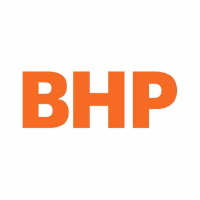 |
Bhp Group Limited | +1.59% | +31.00 | 1,983.00 |
| 2 |  |
Rolls-royce | +1.41% | +8.00 | 576.60 |
| 3 |  |
Marks And Spencer Group Plc | +1.28% | +4.80 | 380.30 |
| 4 |  |
Pershing Square Holdings Ltd | +1.03% | +40.00 | 3,930.00 |
| 5 |  |
Bt Group Plc | +1.01% | +1.45 | 145.50 |
| 6 |  |
Glencore Plc | +0.88% | +3.10 | 356.50 |
| 7 |  |
Bp Plc | +0.83% | +3.25 | 396.25 |
| 8 |  |
Centrica Plc | +0.82% | +1.10 | 134.70 |
| 9 | 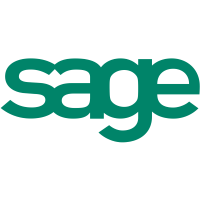 |
Sage Group Plc | +0.75% | +9.50 | 1,282.50 |
| 10 | 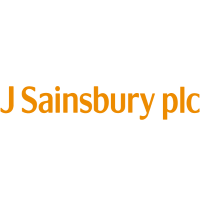 |
Sainsbury (j) Plc | +0.73% | +2.00 | 275.60 |
Top 10 FTSE 100 Fallers
| Sponsored by Plus500 |
|
| # | Name | Change Pct | Change | Cur Price | |
|---|---|---|---|---|---|
| 1 |  |
Aib Group Plc | -2.67% | -12.00 | 437.00 |
| 2 |  |
Banco Santander S.a. | -2.03% | -7.50 | 361.50 |
| 3 |  |
Barclays | -1.36% | -3.65 | 264.50 |
| 4 |  |
Hsbc Holdings Plc | -1.10% | -8.60 | 776.70 |
| 5 |  |
Intertek Group Plc | -0.85% | -40.00 | 4,688.00 |
| 6 |  |
Melrose Industries Plc | -0.83% | -4.60 | 549.20 |
| 7 |  |
Natwest | -0.82% | -3.30 | 398.80 |
| 8 |  |
Segro Plc | -0.77% | -5.40 | 695.80 |
| 9 |  |
Standard Chartered Plc | -0.75% | -7.40 | 981.20 |
| 10 |  |
Prudential Plc | -0.66% | -4.20 | 632.80 |
US close: Stocks slip for third successive day
Stocks on Wall Street endured a third successive decline during the next-to-last trading session of 2024, amidst a general recognition that Santa Claus had left investors in equities high and dry at the tail-end of the year.
Of course, the tally for the year as a whole on the other hand was quite positive.
The Dow Jones Industrials Average fell by 0.97% or 418.48 points to 42,573.73, alongside a 63.90 point or 1.07% decline on the S&P 500 to 5,906.94.
The Nasdaq-100 was down by 235.25 points or 1.19% to 19,486.78.
The CBoE’s VIX index climbed 9.09% to 17.40.
Shares of Boeing were in the spotlight following a catastrophic emergency landing by a South Korean Jeju Air 737-800 on Sunday whose landing gears failed to deploy after a bird strike.
Only two passengers survived.
The country’s authorities ordered a “special safety inspection” of all Boeing 737-800s.
Nonetheless, budget airline Jeju was known to be the most heavily-fined carrier in South Korea since 2020. Reports also indicated that Jeju had pushed the aircraft involved in the incident hard before the accident.
Market News International’s Chicago Business Barometer slipped by 3.3 points from the month before to reach 36.9 in December (consensus: 42.8).
The Dallas Fed’s regional factory index improved from a reading of -2.7 for November to 3.4 in December.
An index of pending home sales jumped by 2.2% month-on-month in November (consensus: 0.7%), according to the National Association of Realtors.
Thursday newspaper round-up: Shop closures, BoE cuts, Chinese hackers, Post Office
The UK lost about 37 shops a day during 2024 in yet another brutal year for the high street, data suggests. Almost 13,500 retail stores closed for good in the last 12 months, a rise of 28% on 2023 – although the losses were below the levels seen each year between 2019 and 2022, according to provisional figures compiled by the Centre for Retail Research. – Guardian
White-collar graduates are earning thousands of pounds less in real terms than before Covid as Britain faces a “brain waste” overqualification crisis. Accountants, civil engineers and scientific researchers are among the graduates earning far less than if they had entered the job market in January 2017, two years before the pandemic struck, according to Telegraph analysis of Indeed data. Many professions regarded as safe bets for young people have suffered big hits to pay over this time, with some set to make scarcely more than the minimum wage next year. – Telegraph
The Bank of England will be forced to cut interest rates at least four times this year to boost flagging economic growth, according to economists polled by The Times. The majority of the 51 economists taking part in The Times’s eighth annual economists survey said the base rate will fall to at least 3.75 per cent in the year ahead, from 4.75 per cent, implying four quarter-point rate cuts. – The Times
Chinese government hackers breached the US Treasury office that administers economic sanctions, the Washington Post reported on Wednesday, identifying targets of a cyber-attack Treasury disclosed earlier this week. The Treasury letter earlier this week said hackers compromised third-party cybersecurity service provider BeyondTrust and accessed several employee workstations and unclassified documents. – Guardian
The Post Office has been accused of wasting millions of pounds on lawyers involved in a much-delayed compensation scheme for victims of the Horizon scandal. A total of £136m has been spent on legal fees relating to redress schemes for Horizon, a bug-ridden IT system that resulted in a string of subpostmasters wrongly being jailed for fraud. This is equivalent to more than one-quarter of the £499m so far paid out to victims, according to MPs on the Business and Trade Committee. A total of £82m has gone to just one law firm, Herbert Smith Freehills. – Telegraph


 Hot Features
Hot Features





